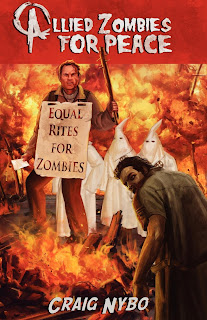It was a cold winter day in 2009 when my life changed forever, however, it would be months before I figured that out. On that fateful day, a drug-addicted surgical scrub tech assigned to my operating room purportedly stole syringes of fentanyl, a potent intravenous narcotic, from my anesthesia cart. According to news reports, investigative summaries, and the scrub tech’s confession, once she took the syringes, she used them on herself.
It’s hard to fathom, but that’s not even the really sick and twisted part to this tale. The scrub tech had hepatitis C, a blood-borne virus that attacks and, sometimes, destroys the liver. She knew she was positive for the virus. Yet, after injecting herself with a drug that was intended for a vulnerable and innocent patient, she chose to refill the syringe, with saline and replace it in my cart. The syringe was contaminated.
There was no way I could have known that she had tampered with my drugs. The syringes were in the same place where I left them, and both fentanyl and saline look identical. So, on that unfortunate day, I allegedly injected a mixture of saline and hepatitis C into my patient’s bloodstream, instead of a painkiller.
The following summer, the story made local and national headlines. At least 5,000 patients were at risk for having been exposed to the virus. Every anesthesiologist in my group secretly prayed that they weren’t involved. I too selfishly hoped that the fiasco would involve somebody else – anybody else – besides me.
A few months later, I received notice that I was being sued, along with the hospital. The ensuing two years was by far the most painful, mortifying, demoralizing, and caustic event of my life. Of course I grieved for the patient, but I had to do so in silence because any discussion of the event was forbidden, on the advice of my attorneys. Never before would I have imagined the depths of shame, guilt, and self-doubt that I was capable of inflicting upon myself.
As the malpractice case evolved, the patient’s lawyers got nastier and greedier. My initial feelings of compassion and empathy dissolved into rage and betrayal. I suffered through an eight-hour deposition with hostile attorneys where I was belittled, ridiculed, verbally abused, and intimidated.
Months later, I was emotionally beaten down, and I made the painful decision to settle. At that point, it was no longer about right versus wrong. I just wanted the nightmare to end. It was at that time, in the middle of settlement negotiations, that I was featured on the local television news station, only to be followed a week later by a front-page headline in the local paper. Statements that I had made during my deposition were taken out of context. The public commenters on the stories cried for my crucifixion. The timing of the stories and their prejudicial slant reeked of a couple of reporters on the take. I was made to look like a cold, heartless, reckless villain, and the patient was the innocent victim of my blatant negligence. That wasn’t the reality, but I was forbidden to speak out in order to defend myself . . . on the advice of counsel.
I never got my day in court or my opportunity to explain that I’m not a monster. I wish I could have explained that, before this happened, I was a caring, compassionate, skilled, and highly qualified physician. The manner in which I secured and stored my narcotics was identical to the manner in which at least 95% of my colleagues handled theirs. We were all taught during residency that the operating room was a secure environment. There were no rules or policies in place at any of the hospitals at which I practiced at that time dictating how narcotics should be secured. It wasn’t until after the event, and a national spotlight highlighted the issue, that strict rules were established and policies were rigidly enforced. Anyone who claims otherwise is deceitful and more interested in self-preservation than the truth.
Now, sadly, I am a shadow of my former self. With respect to the practice of medicine, I’m bitter, defensive, cynical, and wounded. I need to stress that in no way is this article intended to take away from the fact that a patient was hurt and suffered while under my care. The circumstances under which this occurred, though, were extreme. I was as much of a victim of the scrub tech’s crime as my patient. We just endured different kinds of injuries. Mine were of the heart and soul and will never heal.
Once the malpractice case came to a conclusion, friends and family urged me to tell my story. From my grief and devastation, the words poured from my soul, and It’s Nothing Personal was born.
One of the most frequent questions I am asked is if the writing process was cathartic. Surprisingly, it was not. Researching the story opened old wounds and even inflicted new ones. What was cathartic, however, was being able to take the ordeal and mold it into a story. I finally got to be the puppet master. Imagining what could have been, instead of what actually was, left me invigorated.
IT’S NOTHING PERSONAL
by Kate O’Reilley
Publisher: Quandary Publishing
Pages: 385
Kindle Edition
File Size: 533 KB
Print Length: 386 pages
Publisher: Quandary Publishing, LLC; 1 edition (January 14, 2013)
Sold by: Amazon Digital Services, Inc.
Synopsis:
Dr. Jenna Reiner had no idea when she went to work on a snowy January morning that her life would be change forever. A rogue scrub tech, infected with a lethal virus, is stealing anesthesiologists’ narcotics. The scrub tech’s addiction evolves into a public health scare, potentially affecting thousands. Unfortunately, on that fateful day, Dr. Reiner falls victim to an addict.
The ensuing medical malpractice suit filed by Dr. Reiner’s patient and a set of ruthless attorneys becomes a battle for survival. For Dr. Reiner, the lawsuit is personal. Her very soul is on the line as she fights against greed and a corrupt legal system. Will Dr. Reiner prevail? Or will the system win?
Inspired by true events, this is a story of survival and pain beyond imagination.
Read chapter 1 HERE






















